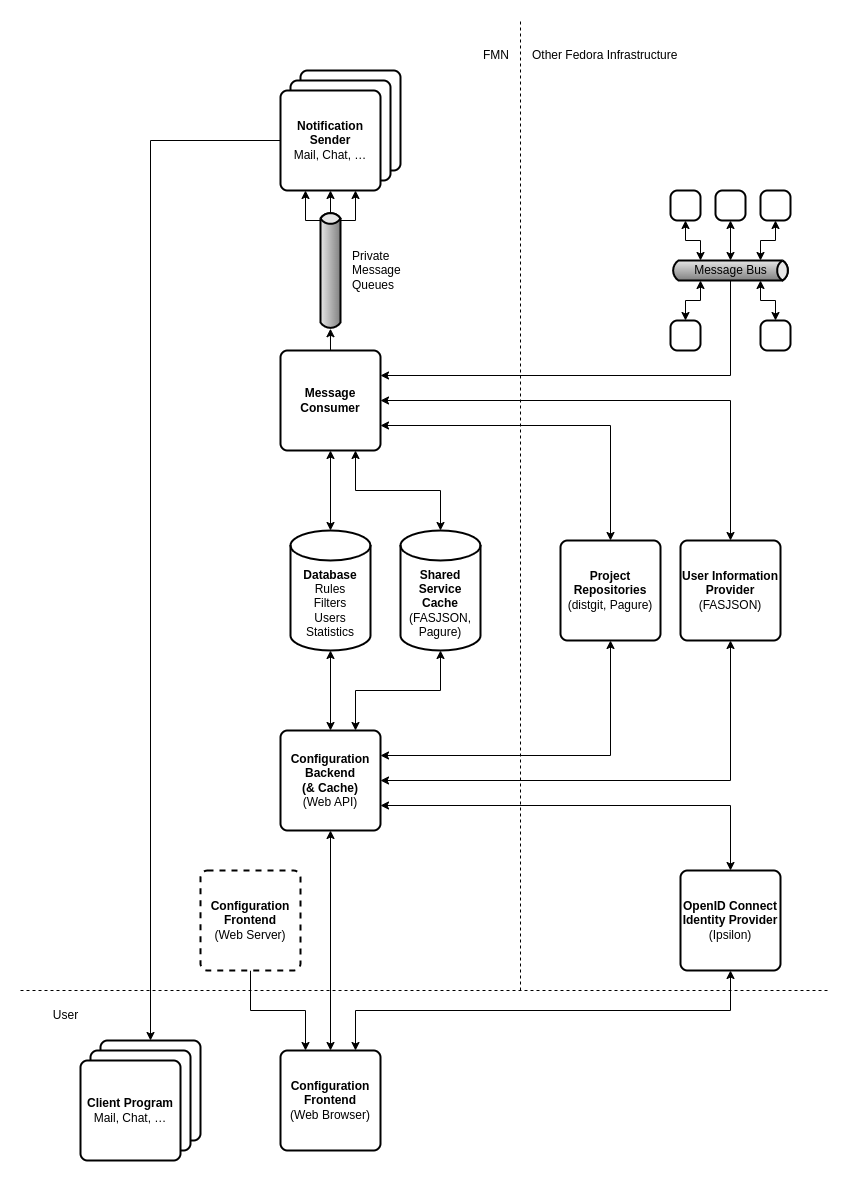Components¶
FMN consists of several components, most of which run in Fedora Infrastructure.

Message Consumer¶
The Message Consumer reads messages carried on the Message Bus. If a message is matched by a rule, it triggers the appropriate Notification Sender to send an email or chat message to the user who set up the rule.
It queries FASJSON and dist-git (Pagure) for information about users, groups and projects and stores the information in the Shared Service Cache (which is also used by the Configuration Backend) and is responsible for invalidating cached entries when receiving messages that affected objects have changed.
There can be multiple instances of the Message consumer, each will process incoming messages in a round-robin fashion.
Notification Sender¶
A Notification Sender receives messages over a private message queue from the Message Consumer, triggering it to send notifications to users over various communication channels, such as IRC, email or Matrix. These messages contain all information a sender needs to perform the work, no additional lookups in other services are necessary.
Because of how IRC and Matrix work, there can only be one instance of their respective senders.
Configuration Frontend¶
The Configuration Frontend is an application running in a web browser and is implemented using
Vue.js. It lets users configure rules specifying which bus messages they want to be notified about,
e.g.:
Regarding certain artifacts they’re interested in,
regarding themselves or groups they are a member of,
regarding someone else, e.g. a mentee or someone they sponsored.
It communicates with the Configuration Backend over a REST web API which also acts as an intermediary cache to services like FASJSON and dist-git (Pagure).
The Configuration Frontend lets users authenticate themselves with Ipsilon (our OpenID Connect identity provider) and uses the token it receives to establish a user’s identity with the Configuration Backend.
Configuration Backend¶
The Configuration Backend is a service implementing a REST web API using FastAPI and Python. It lets users manage their notification rules which are stored in the Database. Additionally, it works as a proxy cache to FASJSON and dist-git (Pagure) using the Shared Service Cache which is also used by the Message Consumer.
The Configuration Frontend which uses the web API on behalf of a user establishes their identity to the Configuration Backend using the token it got from the OpenID Connect Identity Provider (Ipsilon).
Database¶
The Database is used to store the rules describing which messages users want to be notified about, as well as the number of notifications generated by a rule, to produce statistics for users and administrators.
It is implemented as a PostgreSQL RDBMS and accessed by the Message
Consumer and the Configuration Backend using the
SQLAlchemy object relational mapper.